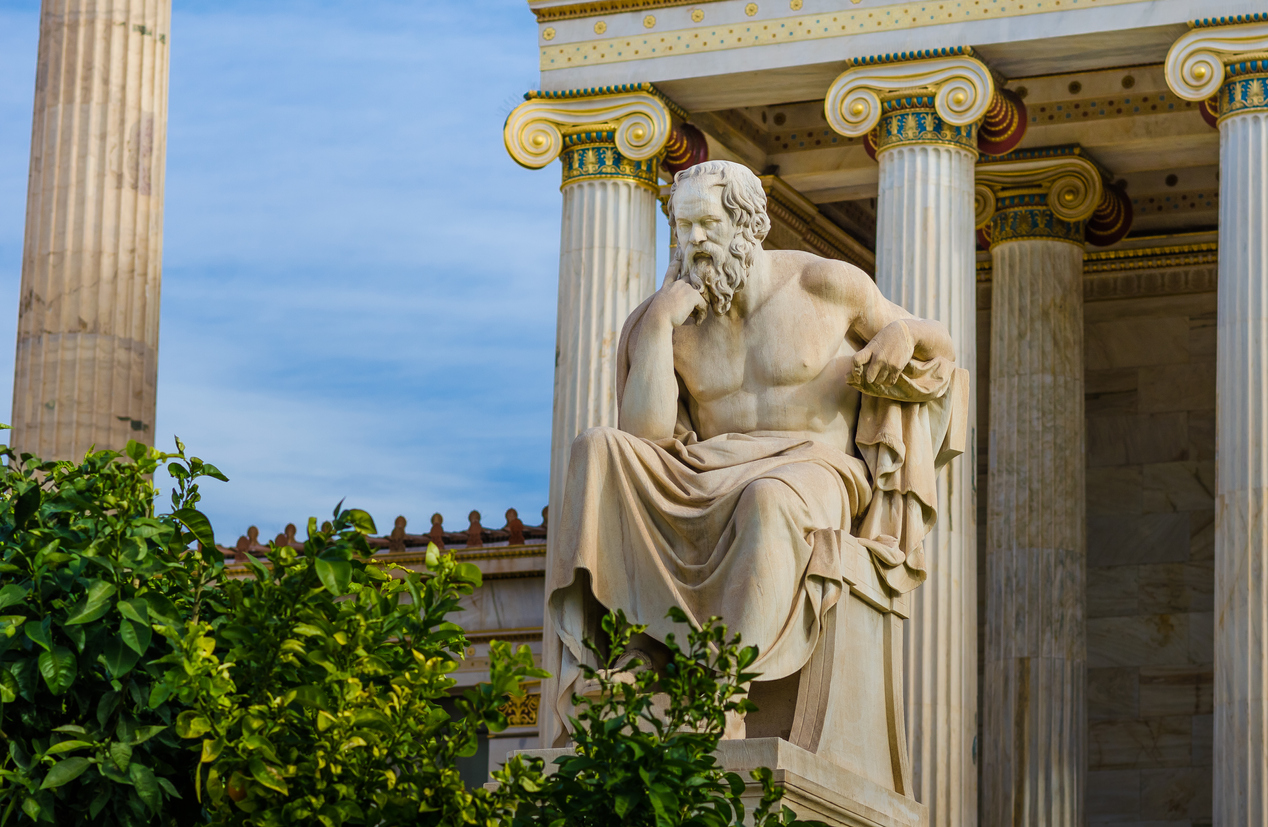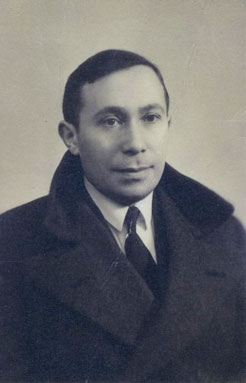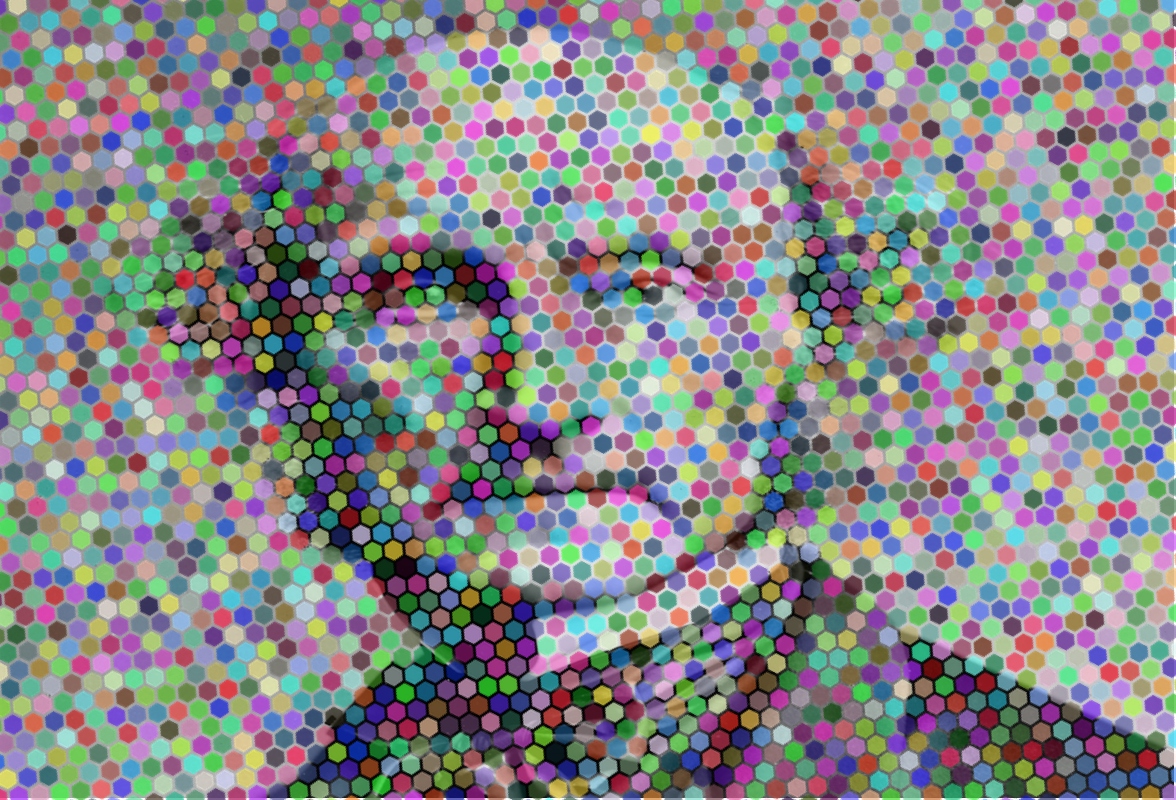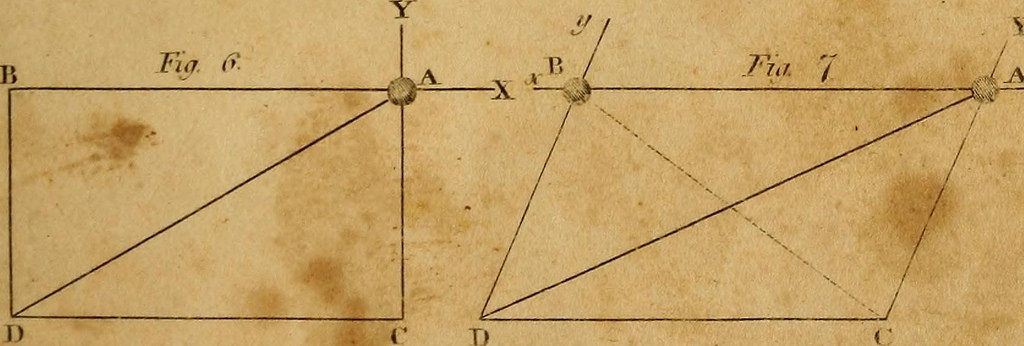Ellmers and Wise’s skeptical philosophers will have to speak to the scientific academy in its own language. These are the questions that need answering.
Keeping Nature in Science—and Politics
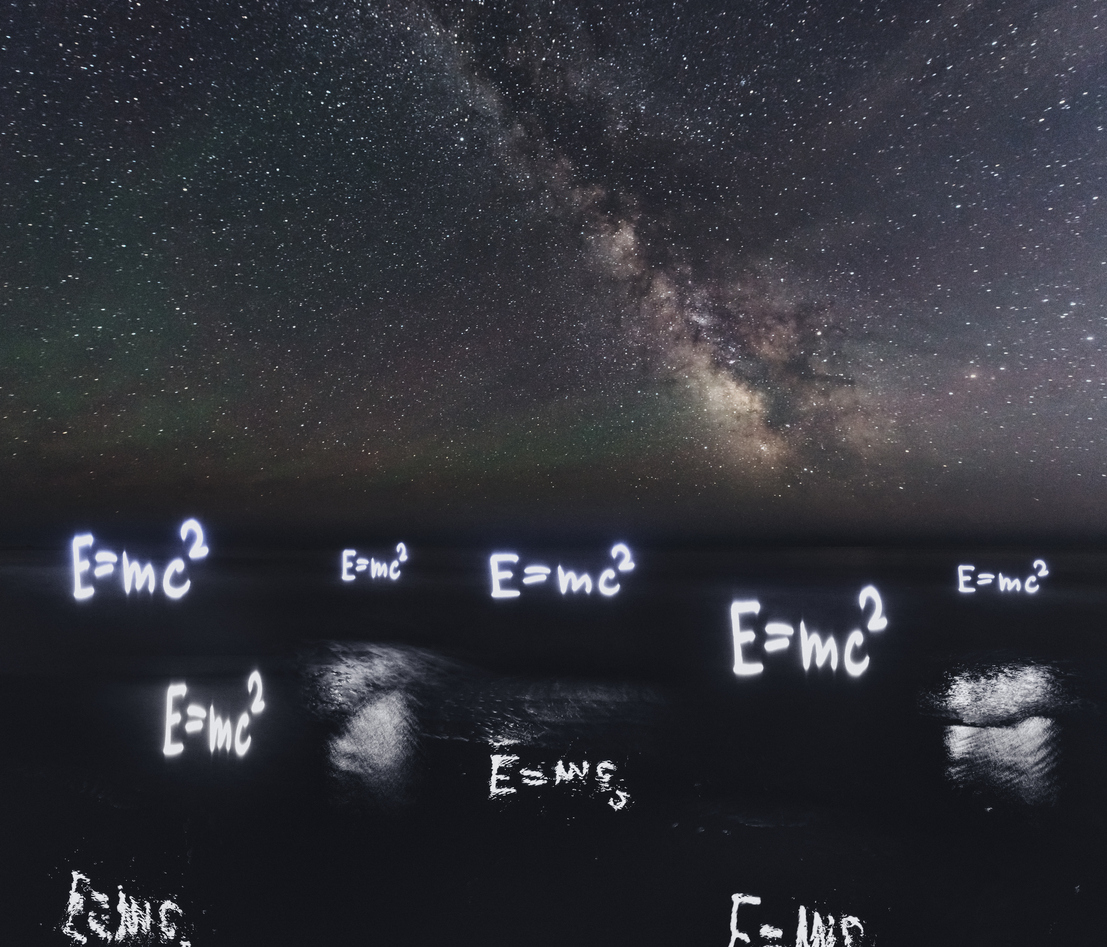
Leo Strauss would want us to pursue the question of teleology in nature. Natural right depends on it.
We Mean No Offense
We enjoyed the perspicacious comments kindly offered by Dustin Sebell, Keith Whitaker, and Ross Hunt on our essay “Skepticism, Experience and Science.” Since Hunt’s statement consists mostly of a number of percipient questions, for which we thank him, we will address those in a separate response, forthcoming. In their comments, both Sebell and Whitaker criticize us for not recognizing Straussians who have directly engaged topics pertaining to modern science. Sebell criticizes us for not understanding Strauss, offering his own characterization of Strauss and the truth as essentially Platonic and Xenophonic, if not necessarily conventionally so. Whitaker similarly criticizes our understanding of Strauss, but on different grounds: largely our de-emphasis of esotericism in favor of renewed engagement with nature as the ground of natural right and truth. Both appear to take some amount of personal offense at our unvarnished criticism of Straussians.
To address the last point first: we mean no offense. We have the highest respect for our Straussian friends, but to steal a page from one who might be able to speak to the materialist-scientific mind, the truth is greater than friendship. And if we “blame” our Straussian friends it because we hold them to a higher standard of both understanding and responsibility. As we see it, Strauss midwifed the rebirth of classical rationalism using esoteric readings to show that the ancients were too sophisticated to be dismissed by modernity as the quaint beginnings of thought. Strauss showed us that ancient thought might offer sufficiently sophisticated political advice to displace modern political science whose empiricism, in the words of Strauss, amounted to “retail sanity and wholesale madness.”
But once reborn—accepted as sophisticated and a plausible advisor of politics—did Strauss intend that the ancient science should remain in the nursery to be continually swaddled in the esotericism needed for its rebirth, rather than to mature and engage the world on a broader basis? We think the latter: “It is not self-forgetting and pain-loving antiquarianism nor self-forgetting and intoxicating romanticism,” Strauss counseled in The City and Man, “which induces us to turn with passionate interest, with unqualified willingness to learn, toward the political thought of classical antiquity. We are impelled to do so by the crisis of our time, the crisis of the West,” he insisted, but denied we could “reasonably expect that a fresh understanding of classical political philosophy will supply us with recipes for today’s use.” To the contrary, Strauss made explicit, “only we living today can possibly find a solution to the problems of today.” Today, too many Straussians would prefer to de-emphasize political philosophy’s moral and practical demands in favor of re-enacting the Straussian nativity of classical rationalism—a kind of never-ending secular Christmas pageant performed to deny that circumstances have changed since Strauss’s time. Not least, we now have a beachhead in the universities and the think tanks, and are in a position to recruit a fourth and fifth generation of students.
But there is competition. The Straussian beachhead notwithstanding, social scientists still dominate. They firmly believe, and aggressively argue, that their theories of intersectionality, social justice, environmental justice, etc. are “evidenced based,” by which they mean they are consistent with empirical data amassed by science. Against this wave, Straussians generally recruit from the university population students who tend to reject, at least instinctually, “up-to-date” thinking as at odds with their common sense. But Straussians have almost no power to obtain the attention of students who embrace the “up-to-date” thinking of “scientific” opinion. Worse, Straussians have waning power to retain the attention even of sympathetic students, who require more than the painstaking study of the philosophic texts to sustain them in the hard struggle for independent thought—or, still more, truth. These students are now inclined to look to other sources to explain the lacuna between their common sense and the “up-to-date” wisdom: the “intellectual dark web,” and academics such as Jordan Peterson, psychologists, geneticists, biologists, and scholars closely acquainted with modern science. Straussians may disdain “lazy” students, and simply wait passively for promising young minds to discover the charms of political philosophy. But was this Socrates’ method in the agora?
The “up-to-date” opinions that dominate the university do so because of their basis, direct or indirect, in “the scientific community,” which carries growing authority even as it increasingly abandons common-sensical standards of truth as fundamental as cause and effect. To question the opinions of the city, Straussians must know the opinions of the scientific community and the data that informs them. If not, the next generation of students will be lost to corrupted thought, left and right, that draws credibility from the ostensible authority of science.
The Only Form In Which It is Defensible
Sebell, essentially correctly, has identified our concern on this score as practical. We acknowledge some Straussians are engaged in examining modern science, and we accept the criticism that we have overlooked too many. But we think we have overlooked them because they are such a minority. No Straussian of whom we are aware has made a prominent name critiquing opinions on string theory or environmental science the way Thomas Pangle (for instance) has on the subject of Locke, such that any serious study of string theory or environmental science must acknowledge the criticisms or plaudits of classical rationalism. One might respond that Straussians are interested in political questions, so it is only natural that they would self-select for interest in political philosophy. But today, political arguments are based on appeals to “settled science;” powerful political currents are mobilized around the rhetoric of “believing in science;” the authority of “the science” is invoked to cast the practice of politics itself as unjust, in favor of technocratic administrative fiat. Questions of science are now squarely political. But that an abecedarian such as Bill Nye can become an influential and political spokesperson on the subject of science, while few if any talented Straussians have, suggests that most Straussians simply are not interested.
Sebell claims to be quite interested in deep engagement with science, a theme featured prominently in his enticingly-titled book The Socratic Turn: Knowledge of Good and Evil in an Age of Science. On this score he offers a cryptic statement, which he hints is clarified or elaborated in his book: “the problem is not that ‘nature provides no information that can serve to advise politics;’ the problem is much more serious, much more troubling than that.” Readers whose interest is piqued will have to decide for themselves if their curiosity about this portentous statement is satisfied by reading The Socratic Turn. We would only venture to note that if, as Sebell seems to suggest, the turn from nature to opinion does not include a return to nature, then any “natural right” grounded only in the dialectical or logical examination of opinions is not just separable, but permanently separated, from direct experience. The divided line of The Republic is not conceptually divided into parts, but thoroughly severed. (We cannot help but wonder what becomes of the periagoge in Sebell’s interpretation of Plato, and whether the philosophic escape from the cave entails going up or (as Nietzsche has it) going down.)
Whatever Sebell’s conclusion may be, his examination of science does not seem to point to empirical inquiry as a touchstone of sound metaphysics and broader philosophy. Likewise, “What is science?” seems to be the question that Whitaker suggests should be foremost in the minds of Straussians. We counter that a perseverative interest in this question runs the risk of never getting past the starting point, and failing to be philosophy. In it we see an old species of seduction, common on college campuses, using clever but ultimately ungrounded abstractions to fascinate the young. If you don’t believe us, believe Foucault. Because such a question tempts even Straussians to consider that science is nothing more or less than power, whether of humans or machines, we certainly agree it must be engaged with—but not at the expense of our perceptual grip on natural reality. In connection with this point, Whitaker claims that “nowhere in Strauss’ own writing does philosophy appear to involve considerations of ‘data sets.’” But Strauss plainly conceded that totalities of empirical observation could perfect or complete philosophical insights. Strauss remarked he never fully understood megalopsychia until he witnessed Churchill. We take this to be as plain an admission as one can imagine that in the least the study of natural right—the curbing of retail sanity and wholesale madness—cannot end with theorizing. The crucial study of magnanimity, Strauss stresses for us, could only reach its completion by perceiving it as it exists in the world—by being familiar with its ‘data set’ of actual phenomena. We think this is no less true of other natural phenomena.
It is possible to assert dogmatically that natural ends are not knowable from experience. (Millions of kindergartners will be horrified to learn that their bean growing experiments taught them nothing.) But it is unphilosophic, indeed unscientific, to be closed to its possibility and to fail to examine it seriously. In his book, Sebell analyzes how Socrates in the Phaedo rejected—perhaps a bit too quickly—the version of teleology he learned from Anaxagoras. This is hardly sufficient, however, to conclude that every argument for teleology is thereby refuted for all time. Would Socrates endorse such an argument from authority—even or especially his own? Whitaker mentions Strauss’s portentous statement in in Natural Right and History that “the teleological view of the universe, of which the teleological view of man is a part, would seem to have been destroyed by modern natural science.” But he does not furnish a compelling Straussian rejoinder in so far as he suggests that Aristotle’s thought was not in fact thoroughly teleological. As we see it, Strauss says “would seem.” “Would seem” is a second conditional construction, which implies a primary subjunctive clause. So, we ask, what is the implied primary subjunctive? Are we to read Strauss with care or not? Whitaker further points out that Strauss wrote, “An adequate solution to the problem of natural right cannot be found before this basic problem has been solved.” We take this to mean—rather obviously to us, but to the puzzlement of several of our readers—that Strauss invited his students to tackle and solve this problem. We think, then, we are merely urging Straussians to get on with the mandate their teacher imparted, one that he could not fulfill himself as the rebirth of classical rationalism was enough for one man in one lifetime.
Sebell criticizes us, too, for being insufficiently familiar with Strauss. “Ellmers and Wise go far beyond” Strauss’ position on classical teleology, he argues. We read in Strauss evidence of a “cosmic teleology” belonging to Plato and Aristotle. “So far as I am aware,” counters Sebell, Strauss “never said anything of the sort.” But we think Strauss says it quite clearly in Natural Right and History: “Natural right in its classic form, the only form in which it is defensible, is connected with a teleological view of the universe [emphasis added]. All natural beings have a natural end, a natural destiny, which determines what kind of operation is good for them. In the case of man, reason is required for discerning these operations. Reason determines what is by nature right, with ultimate regard to man’s natural end.”
Isomorphic and Veridical Thought
Of course, Strauss said many things, often in subtle, exaggerated, or seemingly contradictory ways. Indeed, it is possible to find a line or phrase from Strauss averring almost anything. And this is precisely one of the problems of Straussianism, which may be a cause of their neglect of science. Straussians tend to turn to the text first to make a point, and this virtue becomes a vice when it lures Straussians into relying on arguments from authority. “Strauss said x,” however persuasive to Straussians, is the weakest of arguments. For all their faults, one does not find modern scientists asking “but where does Newton say this?” In an important sense, we do not need to know exactly what Strauss said except to find clues as to how to resolve problems independent of Strauss. We can and must examine the problems independently.
In order for there to be a permanent non-arbitrary order that is a guide to understanding phenomena, including moral and political phenomena, its origin cannot reside in human nature or in the opinions of human beings alone. There must be an unchanging framework of changing experience which is capable of being examined, which framework has objective purpose, or teleology. Aristotle considered this in his Metaphysics axiomatically, meaning Aristotle admitted that some part of his Metaphysics cannot be demonstrated but had to be taken as true for the balance his system of thought to hold together. Indeed, all science must (at least informally) proceed this way. Aristotle’s examination involved four causes evident to common sense perception, which can be explained simply with respect to art as the intention of the artisan, but which with respect to natural phenomenon beg for a non-arbitrary intention, i.e., one that is not a delusion of the observer. The solution for Aristotle is to posit, axiomatically, a parallel between human thought and divine thought, or to state this in modern terms to posit that the structure of human thought is “isomorphic” and “veridical,” i.e., similar to the structure of reality and the whole.
It is on this basis that Aristotle resolves the contradictions of Platonic forms such that observations of nature can serve as the ground of conclusions about the whole, and then be applied to new observations. That is to say, one of the rebuttals of the Platonic forms in Metaphysics is the forms imply a form of a form, and a form of a form in turn implies a form of a form of a form, and so on in infinite regression. With being defined by the four causes evident from experience of matter and motion (coming into being and ceasing to be), rather than form separate from matter, the Platonic contradiction is not only resolved, but experience is elevated as a ground of knowledge. Thus, the study of biology can reveal that each animal has a certain completion—herd animals need a herd for their completion, solitary animals need other things for theirs—and that man as an animal similarly has a completion, one that can be realized fully only in a particular type of social organization, a polis, where the necessary conditions can be met for humans to be all that of which human beings are capable. This account becomes more than simply an empirical description of how human beings live together because it can be considered in light of the ends of the whole, of which the highest end is thinking.
From Einstein to String Theory
Indeed, modern science already dabbles in the belief that the structure of the whole is similar to the structure of human thought. In 1905, a German Jew and contemporary of Strauss’ who had no university seat, Albert Einstein, wrote a paper challenging the notion of a “luminiferous ether” or “light medium” which accounted for the observed uniform velocity of light in a vacuum which, as constructed, preserved such things as the law of addition of velocities in the observation of certain phenomena. Overturning the reigning hypothesis, Einstein asserted that applying the Lorentz calculation to motions in different frames of reference one could know that c (speed of light in a vacuum) was the upper-bound of the rate of displacement of any body (or anything, for that matter, including any communication), because at velocities greater than c an imaginary number (√-1) appears in the denominator of the Lorentz calculation.
Einstein’s argument explained the phenomenon of the anomaly of the perihelion of Mercury, but required years to be confirmed experimentally. The success of this mathematical argument in predicting phenomena—of seeming to exhibit a structure similar to the structure of experience—rivaled the innovations of Euclid and Newton, and spawned a quest to replicate its success in the search for a theory of everything to link quantum mechanics and relativity. That quest is known as string theory.
String theory has at once charmed many of the top mathematician/physicists to join the enterprise and drawn sharp criticism for its emphasis on mathematical argument over success in prediction. The body of string theorists is approximately 2,000 mathematician/physicists strong—with certainly many more hangers on—and commands the allocation of enormous amounts of research capital in colliders around the world, such as the Large Hadron Collider. It is a matter of considerable political influence and its practitioners casually claim to be conducting an investigation into fundamental reality, which one might take as a proxy for being (see, e.g., The Little Book of String Theory by Steven Gubser, an ingeniously accessible account of string theory). In addition to commanding enormous amounts of money, it has popularized concepts such as a multiverse (a contradiction of the term universe, which means the whole).
Einstein’s original Gedankenexperiement (thought experiment) thus induced the further and far more elaborate thought experiment that is string theory. On what basis is a thought experiment a compelling method—with its dramatic theoretical AND practical consequences—if not that the structure of thought is (at least possibly) similar to that of the whole? It would seem that an inquiry into natural right and being would be obliged to address this at once elegant and clumsy theory of being and examine its contradictions, if any. And this is but one example of the sort of thing we would expect interest in if Straussian scholars took too heart the admonition of their teacher that “An adequate solution to the problem of natural right cannot be found before this basic problem has been solved.”
The American Mind presents a range of perspectives. Views are writers’ own and do not necessarily represent those of The Claremont Institute.
The American Mind is a publication of the Claremont Institute, a non-profit 501(c)(3) organization, dedicated to restoring the principles of the American Founding to their rightful, preeminent authority in our national life. Interested in supporting our work? Gifts to the Claremont Institute are tax-deductible.
Could it be that the “Aristotelian” teaching of teleology is exoteric?
Even in a time of unbounded technology, feel-good utilitarianism has its limits.
Across the scientific disciplines, today's problems arise from the same root cause.
Responses to Glenn Ellmers and J. Eric Wise's argument for an invigorated political philosophy that addresses the looming problems of modern science.

